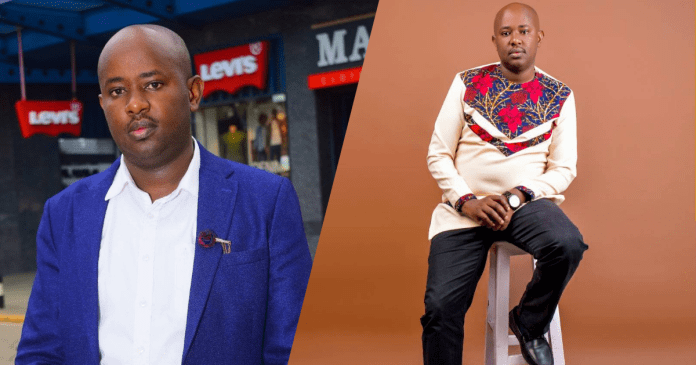When Harrison Mwaura won a jaw-dropping Sh 224,000 from a single bet, he thought he’d hit the jackpot, literally. But by sunrise, all the money was gone. All he had left was regret, confusion, and a chicken he had bought for Sh1,000.
Today, Harrison is an addiction counselor and he shared his gripping story on Spice FM on the morning of Wednesday, May 14.
However, before reclaiming his life, he spiraled from a respected banker to a near-homeless gambling addict, neck-deep in debt, and on the brink of incarceration.
I have KSh 1 million loan from 52 apps, my salary is KSh 55,000
“I started with a Sh 500 bet on 14 games and won Sh 21,000. That small win changed everything. It felt magical. I moved from a bedsitter to a one-bedroom. My wife thought I had discovered a new business,” he recalled.
But what followed was years of financial and emotional ruin, triggered by a seemingly innocent win. His story is a cautionary tale of how gambling addiction silently tightens its grip.
“I kept betting and winning. My brain only remembered the wins, the Sh200,000 here, the Sh 20,000 there. Never the losses. Eventually, I won Sh224,000, and the only thing I bought was a chicken. The rest? I bet it all. By morning, I had nothing,” he said.
Harrison says the real addiction lies not in the money, but the dopamine rush an intense high that keeps the gambler coming back for more.
“It’s not just about placing bets; it’s about the thrill the near-miss, the jackpot chase. Even when you lose, your brain treats it as a near-win. That’s why people never stop. They keep betting, hoping their next win will fix everything.”
He explained how the addiction evolved in four brutal phases: winning, losing, depression, and hopelessness.
“Some people even contemplate suicide if they don’t get help,” he said.
When gambling becomes a disease
As a banker, Harrison handled large sums of money. But addiction blurred his judgment.
“I’d open tabs on my computer one for customer transactions, another for odds. I even took my phone to the toilet to bet. Sometimes I spent over 30 minutes in there,” he said.
Eventually, his gambling habits caught up with him. He lost his job after accruing a Sh 1.2 million debt, almost ended up in jail, and was abandoned by his family.
“I sold my executive barbershop. I sold my cereal shop. I became homeless, sleeping on pool tables. Gambling cost me everything.”
List of top10 richest companies in Kenya, their market value
Kenya’s unfinished war on betting
In Kenya, gambling has long been a hot potato. Back when Fred Matiang’i was the Interior CS, the government cracked down hard, banning sites like SportPesa and Betin and destroying betting machines.
Just last month, the outcry over gambling addiction reached a new high. In response, President William Ruto ordered mobile money operators to disable paybills of over 30 betting sites.
Currently, betting adverts have vanished from the airwaves, and the Betting Control and Licensing Board is pushing to vet all adverts before they’re aired.
Yet, as Harrison points out, regulation is only part of the solution.
“Some lawmakers creating policies are the same ones benefiting from gambling profits. It’s like asking the fox to guard the henhouse,” he said.
Why gamblers never withdraw
So why don’t gamblers cash out when they win big?
“Addiction rewires your brain. When I had that Sh224,000, it didn’t feel like money. It felt like tokens to keep playing. Many of my clients say the same thing. One deposited Sh4,000 and saw their account shoot to Sh 1.1 million—but didn’t withdraw. The brain doesn’t see it as real. It’s just fuel for the next bet,” Harrison explained.
According to him, betting is not a side hustle or investment.
“It’s an emotional problem with financial consequences,” he warned.
Message of hope and caution
Despite the devastation, Harrison’s story doesn’t end in ruin. He got help, got clean, and now helps others find the strength to do the same.
“My wife had to choose between taking care of me or our child. I lost my family, my career, and my dignity. But I had a support system. That’s what saved me. Not everyone is that lucky,” he said.
Now, as an addiction counselor working with rehabilitation centers, Harrison offers a lifeline to others caught in the cycle. His message is clear: addiction is a disease, not a choice.
“Society must stop treating gambling addiction as a moral failure. When someone sells land or gambles away rent, it’s not because they’re irresponsible. It’s because they’re unwell. Until we acknowledge that, nothing will change.”









